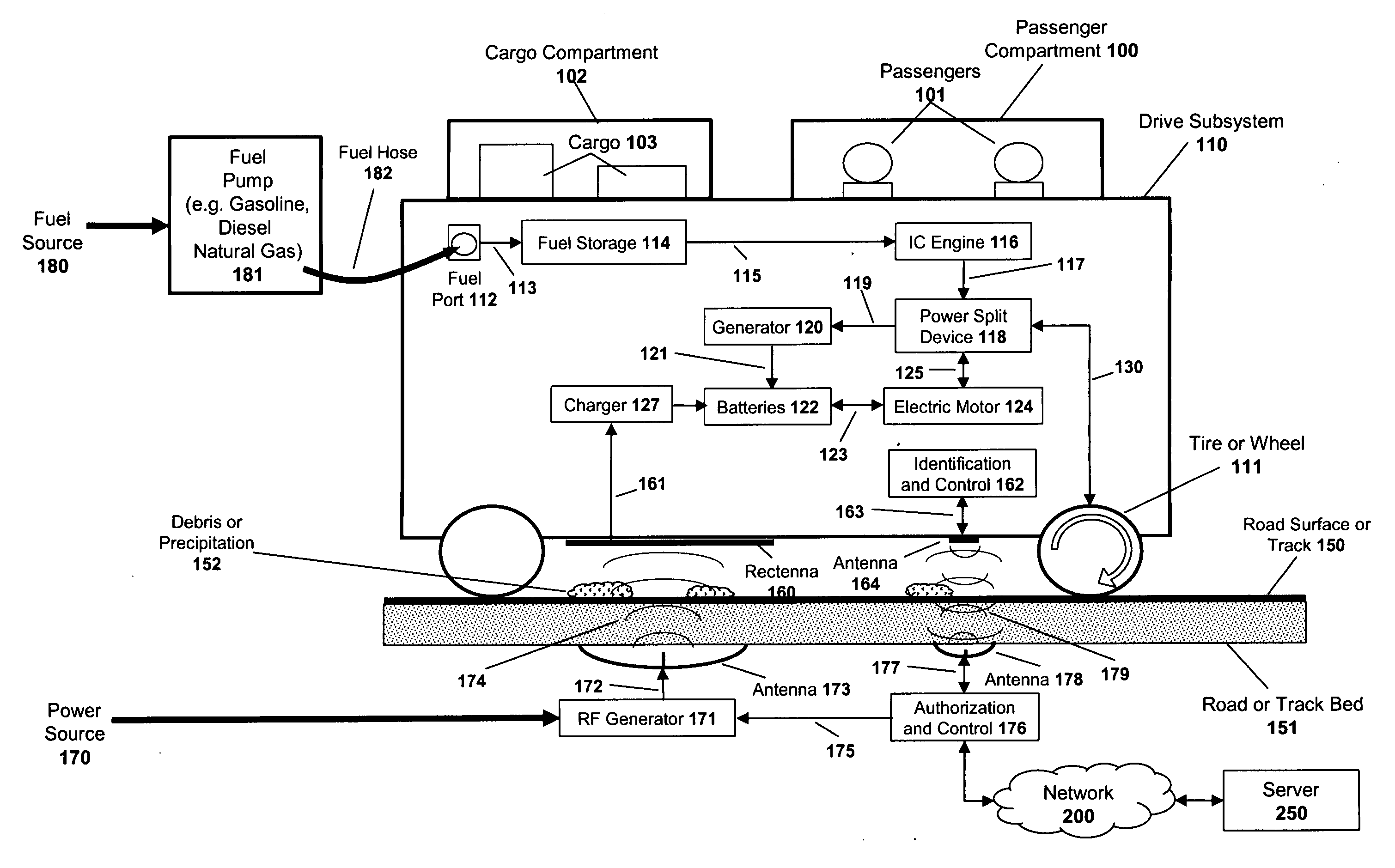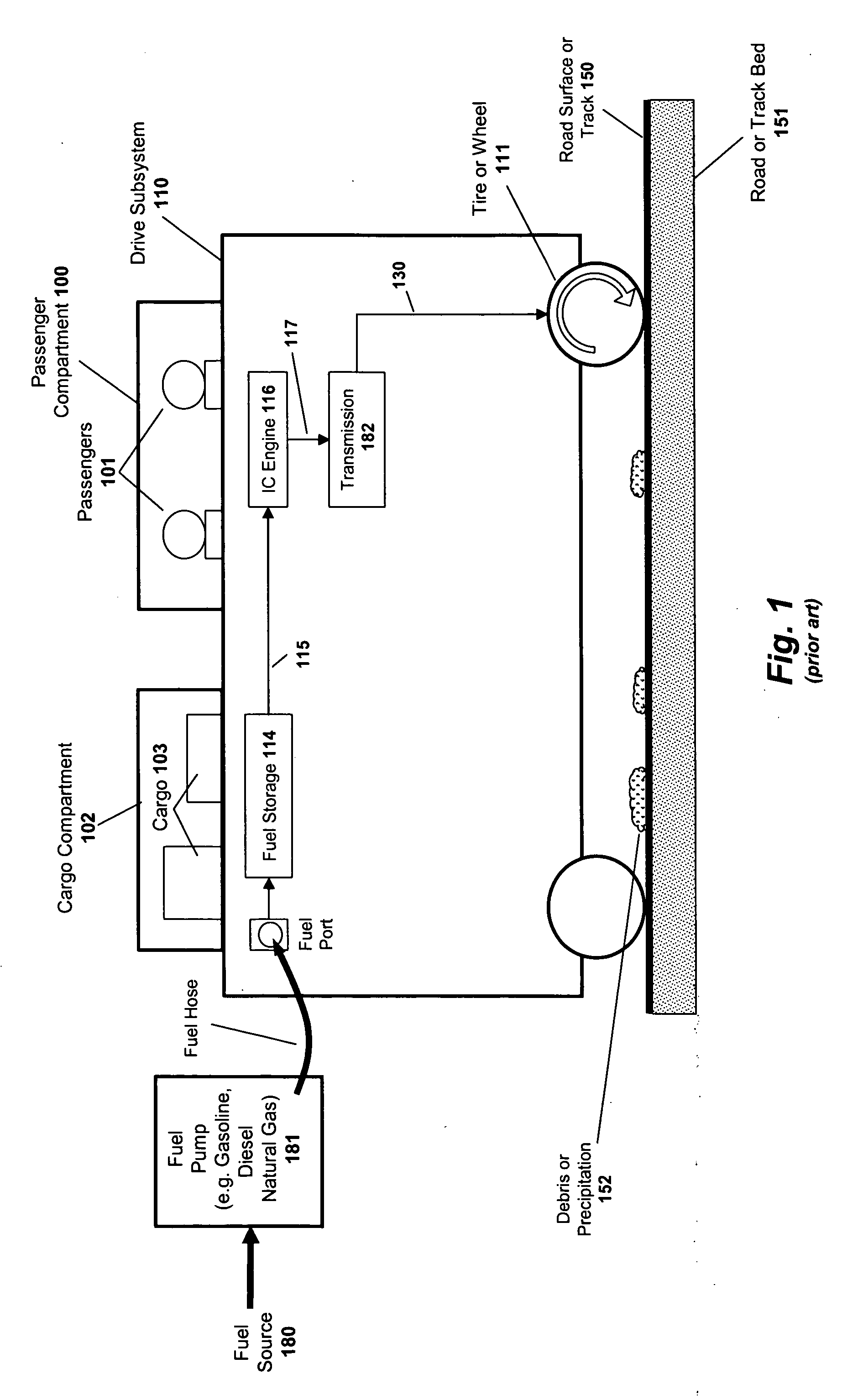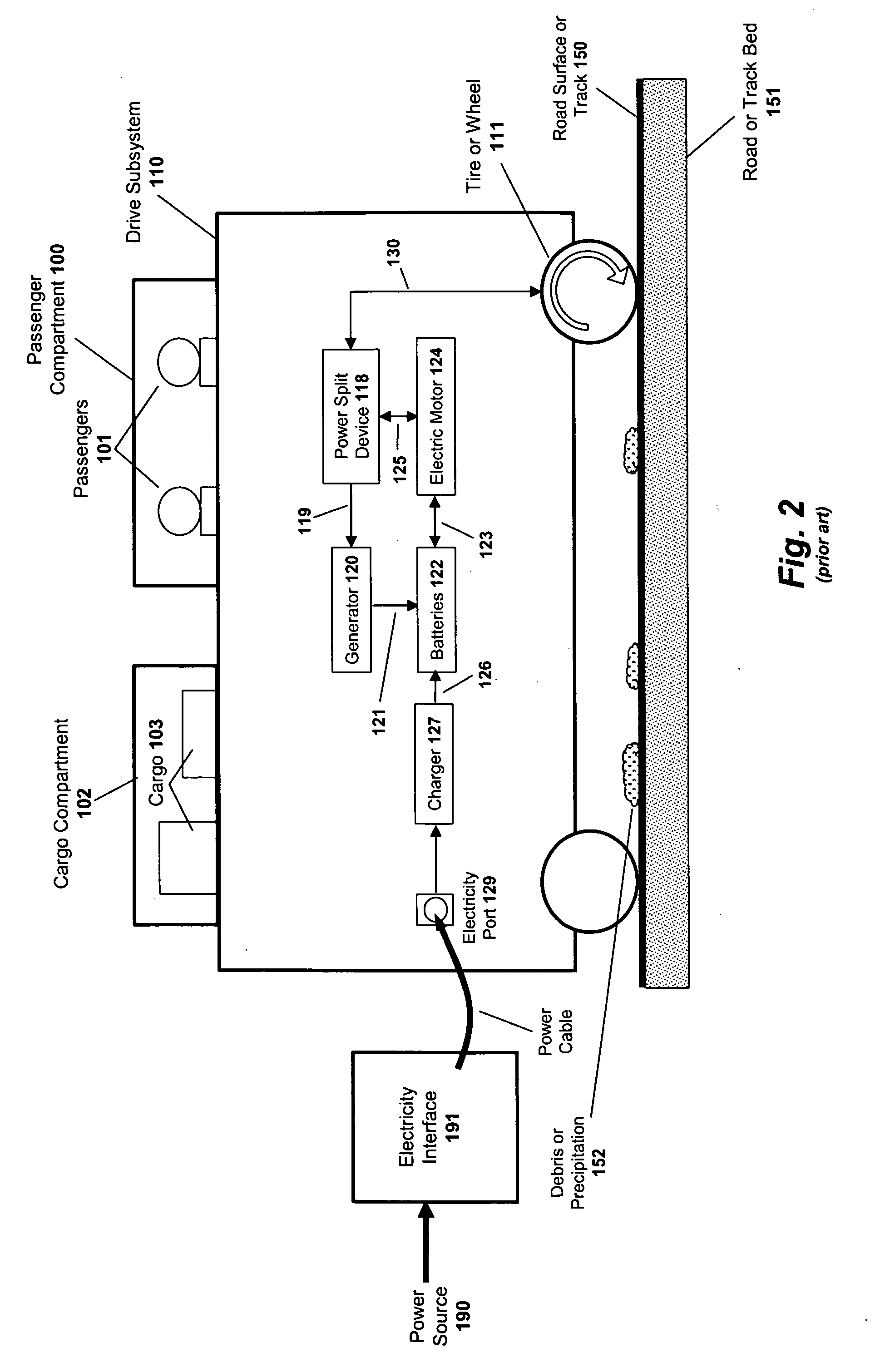System and method for powering vehicle using radio frequency signals and feedback
a radio frequency signal and feedback technology, applied in the field of vehicle propulsion systems, can solve the problems of increasing the cost of fossil fuels, affecting the economic benefits of society, and affecting the practicality of society's reliance on fossil fuels, so as to improve the efficiency of power generation.
- Summary
- Abstract
- Description
- Claims
- Application Information
AI Technical Summary
Benefits of technology
Problems solved by technology
Method used
Image
Examples
Embodiment Construction
[0063]Described below is an improved apparatus and method for powering a vehicle. In the following description, for the purposes of explanation, numerous specific details are set forth in order to provide a thorough understanding of the present invention. It will be apparent, however, to one skilled in the art that the present invention may be practiced without some of these specific details. In other instances, well-known structures and devices are shown in block diagram form to avoid obscuring the underlying principles of the invention.
[0064]One embodiment of the invention powers a vehicle using wireless radio frequency signals transmitted from an antenna embedded within a roadway to a rectenna on the vehicle. The rectenna may be positioned on the underbody of the vehicle and may be configured to receive the RF signals as the vehicle passes over the transmitting antenna.
[0065]FIG. 9 illustrates one embodiment which includes an RF generator unit 171 positioned beneath the road surf...
PUM
 Login to View More
Login to View More Abstract
Description
Claims
Application Information
 Login to View More
Login to View More - R&D
- Intellectual Property
- Life Sciences
- Materials
- Tech Scout
- Unparalleled Data Quality
- Higher Quality Content
- 60% Fewer Hallucinations
Browse by: Latest US Patents, China's latest patents, Technical Efficacy Thesaurus, Application Domain, Technology Topic, Popular Technical Reports.
© 2025 PatSnap. All rights reserved.Legal|Privacy policy|Modern Slavery Act Transparency Statement|Sitemap|About US| Contact US: help@patsnap.com



